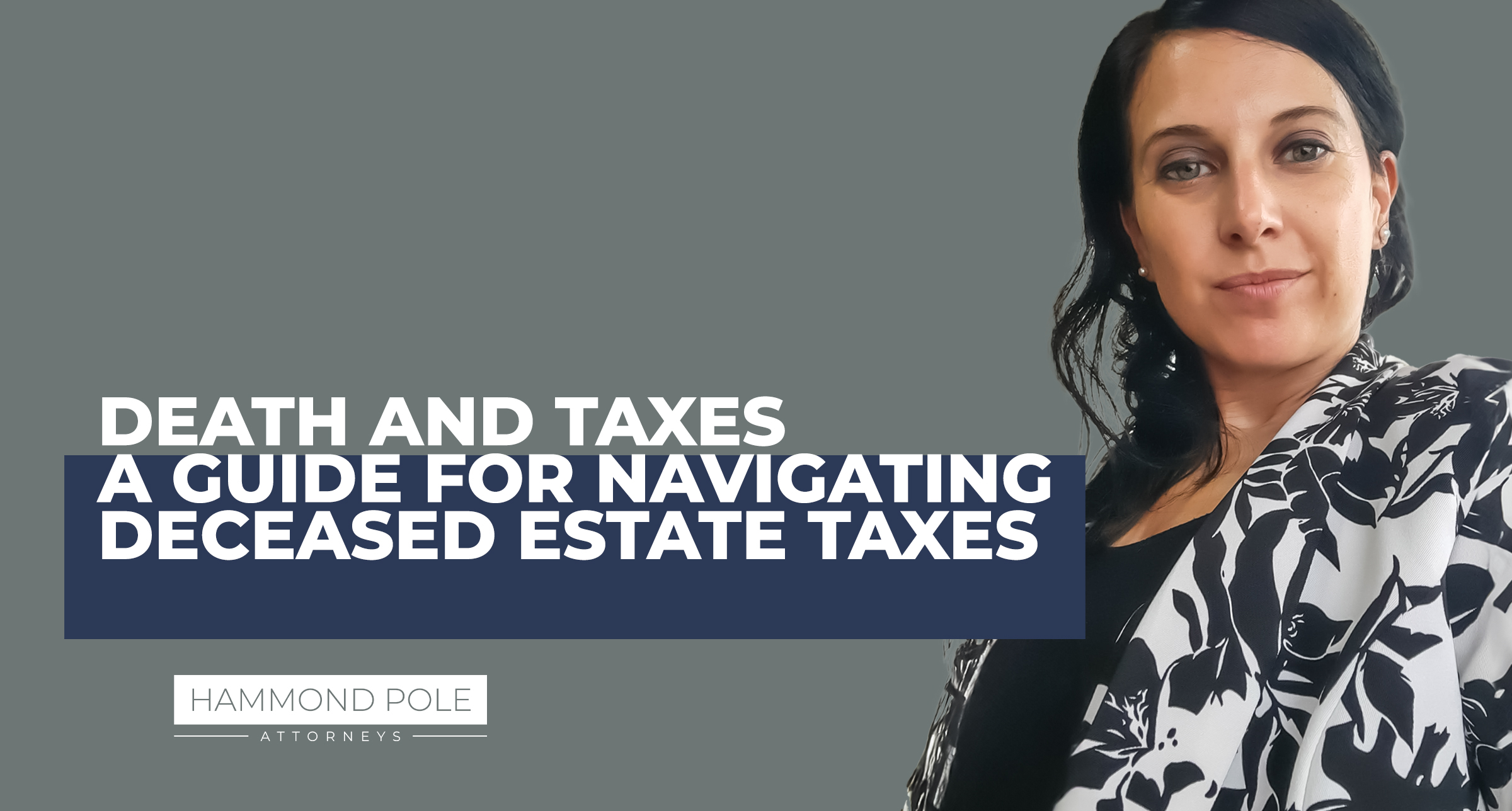Death and Taxes – A Guide For Navigating Deceased Estate Taxes

It’s a well-known adage that the only certainties in life are death and taxes. One crucial aspect of deceased estate administration is the taxes. With the death of an individual in South Africa, the executor has a duty to ensure that all tax returns of the deceased are up to date with the South African Revenue Services (SARS).
It’s imperative to know that there are different types of taxes that come into play in respect of a deceased estate:
- Income tax for the deceased Individual (personal taxes)
- Value added tax (if applicable to the specific estate)
- Capital Gain tax
- Estate duty tax
- Donation tax (if applicable to the specific estate)
SARS should be notified of a taxpayer’s death in all instances.
The executor needs to submit the relevant documentation with SARS and request for the income tax number of the deceased to be coded.
Once the deceased person has been coded, all outstanding tax returns should be submitted up to the date of death. This applies to all tax types, income tax, VAT, PAYE, SDL, UIF and estate duty.
As soon as the executor has finalised the L&D account, it should be submitted to SARS, together with the estate duty return. SARS will perform an audit for all the taxes pre- and post-death.
As soon as the tax liabilities have been paid in full, the Deceased Estate Compliance (DEC) letter is issued for all tax types, including estate duty. The DEC letter must be submitted to the Master’s Office for the executor to be discharged by the Master.
As you will note from the above, handling deceased estate taxes can be quite intricate. Engaging a professional to manage these matters is advisable to ensure full compliance with SARS requirements. This approach ensures compliance and optimises tax efficiency in the aftermath of a loved one’s passing.
*The above is for general information purposes and should not be interpreted as advice.*
Blog article by: Rietta van Vollenstee
For more information, please contact Hammond Pole attorneys:
Rietta van Vollenstee – RietteVV@hammondpole.co.za

